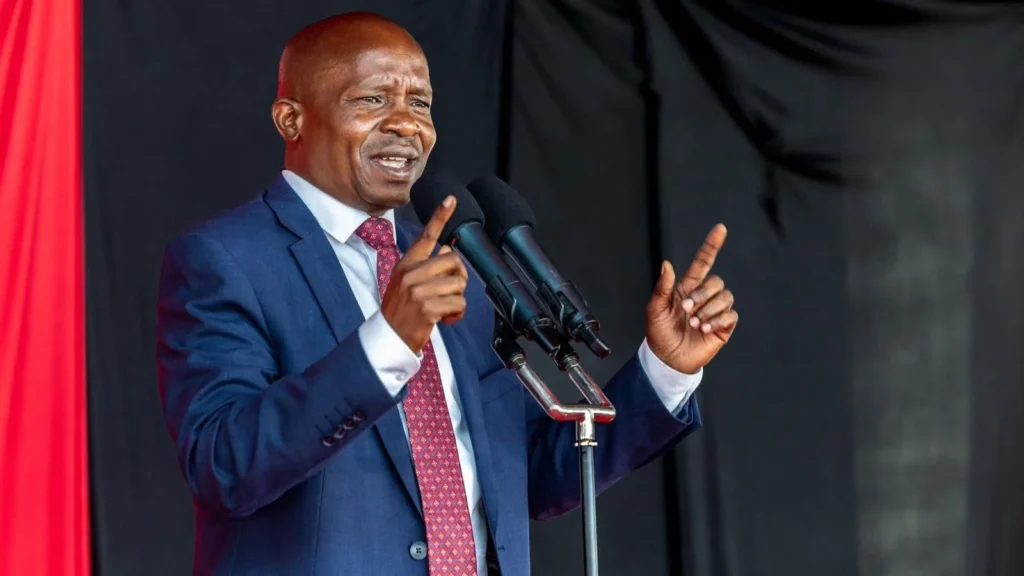Deputy President Kithure Kindiki has reaffirmed the Kenya Kwanza administration’s commitment to tackling unemployment by creating thousands of job opportunities across various sectors. Speaking during an economic empowerment programme in Kakamega on Friday, Kindiki highlighted the government’s strides in employment creation, especially in education, housing, and international labour migration.
According to the Deputy President, the government has employed over 76,000 teachers in the past two years, with plans to recruit an additional 24,000 by December, pushing the total to over 100,000 teachers. He contrasted this with previous administrations, which employed only 4,000 to 5,000 teachers annually.
Kindiki also underscored the success of the Affordable Housing Programme, which has generated employment for over 320,000 Kenyans. The initiative has provided jobs for a wide range of professionals and artisans, including plumbers, carpenters, engineers, and casual labourers. Beyond housing, the programme also focuses on constructing markets and student hostels, such as those being built for Masinde Muliro University and Sigalagala National Polytechnic.
Highlighting international opportunities, Kindiki mentioned the Kazi Majuu Programme, which has enabled 400,000 Kenyan youth to secure jobs abroad. To support these youth, the Youth Enterprise Fund has been tasked with covering key costs such as medical exams, passports, and air tickets.
Additionally, the Deputy President pointed to the Jitume ICT labs as a platform for equipping youth with digital skills for online work. He also noted the revival of collapsed industries, including sugar factories, and the upcoming gold processing plant in Ikolomani as part of the government’s broader plan to stimulate economic growth and job creation.
Other projects such as the construction of Kakamega Level 6 Hospital, Bukhungu Stadium, and improved road infrastructure further demonstrate the administration’s development agenda.
Prime Cabinet Secretary Musalia Mudavadi urged residents of western Kenya to strengthen cooperative societies to unlock financial growth. He emphasized the potential of cooperatives, which serve over 15 million Kenyans and manage Sh1.5 trillion in capital.
“These efforts reflect our unwavering commitment to uplifting the lives of Kenyan citizens,” Kindiki concluded.

